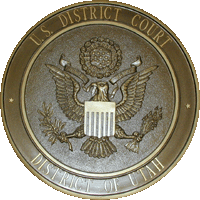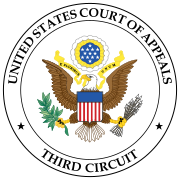Background
In October 2008, the principal of a Tunkhannock Area School District school confiscated several students' cellphones and found photographs of partially clothed female students, but with no sexual acts. The school board gave those photos as to Wyoming County District Attorney George Skumanick, Jr. Skumanick threatened to file charges against those posing in the photographs for production of child pornography, which under Pennsylvania law mandated a seven-year sentence and registration as a sex offender. He would not file charges if the girls agreed to probation, completed a six to nine month educational program which would require participants to submit an essay explaining why their actions were wrong.
Of the more than twenty families involved almost all agreed to the deal, but the parents of three female students objected and filed for a temporary restraining order in district court to prevent the prosecution from taking place while they seek an injunction. The restraining order was granted, and Skumanick appealed. The three girls involved were between 12 and 13. The photos were one with two of the girls lying on the floor in their training bras, the other was of one of the girls wearing a towel after a shower below her breasts. The girls reported they did not distribute the photos, but rather they were shared without their consent. [1]
The ACLU intervened on behalf of the girls. District Attorney Skumanick decided to drop the threat of charges against the two girls photographed in their underwear, but continued to argue that the girl who had photographed herself in only a towel was guilty of creating child pornography.
Miller v. California, 413 U.S. 15 (1973), was a landmark decision of the U.S. Supreme Court modifying its definition of obscenity from that of "utterly without socially redeeming value" to that which lacks "serious literary, artistic, political, or scientific value". It is now referred to as the three-prong standard or the Miller test.
United States v. X-Citement Video, Inc., 513 U.S. 64 (1994), was a federal criminal prosecution filed in the United States District Court for the Central District of California in Los Angeles against X-Citement Video and its owner, Rubin Gottesman, on three charges of trafficking in child pornography, specifically videos featuring the underaged Traci Lords. In 1989, a federal judge found Gottesman guilty and later sentenced him to one year in jail and a $100,000 fine.
Browder v. Gayle, 142 F. Supp. 707 (1956), was a case heard before a three-judge panel of the United States District Court for the Middle District of Alabama on Montgomery and Alabama state bus segregation laws. The panel consisted of Middle District of Alabama Judge Frank Minis Johnson, Northern District of Alabama Judge Seybourn Harris Lynne, and Fifth Circuit Court of Appeals Judge Richard Rives. The main plaintiffs in the case were Aurelia Browder, Claudette Colvin, Susie McDonald, and Mary Louise Smith. Jeanetta Reese had originally been a plaintiff in the case, but intimidation by segregationists caused her to withdraw in February. She falsely claimed she had not agreed to the lawsuit, which led to an unsuccessful attempt to disbar Fred Gray for supposedly improperly representing her.

The Education for All Handicapped Children Act was enacted by the United States Congress in 1975. This act required all public schools accepting federal funds to provide equal access to education and one free meal a day for children with physical and mental disabilities. Public schools were required to evaluate children with disabilities and create an educational plan with parent input that would emulate as closely as possible the educational experience of non-disabled students. The act was an amendment to Part B of the Education of the Handicapped Act enacted in 1966.
Hartman v. Moore, 547 U.S. 250 (2006), is a decision by the Supreme Court of the United States involving the pleading standard for retaliatory prosecution claims against government officials. After a successful lobbying attempt by the CEO of a manufacturing company against competing devices that the US Postal Service supported, the CEO found himself the target of an investigation by US postal inspectors and a criminal prosecution that was dismissed for lack of evidence. The CEO then filed suit against the inspectors and other government officials for seeking to prosecute him in retaliation for exercising his First Amendment rights to criticize postal policy. The Court ruled 5-2 that to prove that the prosecution was caused by a retaliatory motive, the plaintiff bringing such a claim must allege and prove that the criminal charges were brought without probable cause.
Child erotica is non-pornographic material relating to children that is used by any individuals for sexual purposes. It is a broader term than child pornography, incorporating material that may cause sexual arousal such as nonsexual images, books or magazines on children or pedophilia, toys, diaries, or clothes. Law enforcement investigators have found that child erotica is often collected by pedophiles and child sexual abuse offenders. It may be collected as a form of compulsive behavior and as a substitute for illegal underage pornography and is often a form of evidence for criminal behavior.

Morton Ira Greenberg was a United States circuit judge of the United States Court of Appeals for the Third Circuit. He was nominated by President Ronald Reagan on February 11, 1987 and was confirmed by the United States Senate on March 20, 1987. He assumed senior status on June 30, 2000.
United States v. Williams, 553 U.S. 285 (2008), was a decision by the Supreme Court of the United States that a federal statute prohibiting the "pandering" of child pornography did not violate the First Amendment to the United States Constitution, even if a person charged under the code did in fact not possess child pornography with which to trade.
In the United States, child pornography is illegal under federal law and in all states and is punishable by up to life imprisonment and fines of up to $250,000. U.S. laws regarding child pornography are virtually always enforced and amongst the harshest in the world. The Supreme Court of the United States has found child pornography to be outside the protections of the First Amendment to the United States Constitution. Federal sentencing guidelines on child pornography differentiate between production, distribution, and purchasing/receiving, and also include variations in severity based on the age of the child involved in the materials, with significant increases in penalties when the offense involves a prepubescent child or a child under the age of 18. U.S. law distinguishes between pornographic images of an actual minor, realistic images that are not of an actual minor, and non-realistic images such as drawings. The latter two categories are legally protected unless found to be obscene, whereas the first does not require a finding of obscenity.
Sexting is sending, receiving, or forwarding sexually explicit messages, photographs, or videos, primarily between mobile phones. It may also include the use of a computer or any digital device. The term was first popularized early in the 21st century and is a portmanteau of sex and texting, where the latter is meant in the wide sense of sending a text possibly with images. Sexting is not an isolated phenomenon but one of many different types of sexual interaction in digital contexts that is related to sexual arousal.

Jean v. Massachusetts State Police, 492 F.3d 24 is a case concerning the legality of posting a video on the internet obtained by another source through illegal means, which in this case involve use of a nanny cam to record others. The plaintiff filed for a permanent injunction against the defendants, who issued a cease-and-desist order regarding a video posted on the plaintiff's website. The defendants claimed the video was in violation of Massachusetts law M.G.L c 272 § 99, which defines the secret recording of audio without the consent of the persons recorded as interception, and subject to prosecution as a felony due to the presence of audio in the videorecording. The court's decision drew heavily off of previous court case Bartnicki v. Vopper. The court's decision held that it was legal to post such a video which was lawfully obtained from another, especially regarding a matter of public concern.

United States v. Cotterman,, is a United States court case in which the United States Court of Appeals for the Ninth Circuit held that property, such as a laptop and other electronic storage devices, presented for inspection when entering the United States at the border may not be subject to forensic examination without a reason for suspicion, a holding that weakened the border search exception of the Fourth Amendment to the United States Constitution.

Lawrence G. Walters is an American First Amendment attorney and anti-censorship advocate. He is the head of the Walters Law Group, focusing on First Amendment and Internet law, and has served as an Adjunct Professor of Legal Studies at the University of Central Florida.

Rehtaeh Anne Parsons, was a 17-year-old Cole Harbour District High School student who attempted suicide by hanging at her home in Dartmouth, Nova Scotia, Canada, on April 4, 2013, leading to a coma and the decision to switch her life support machine off on April 7, 2013. Her death has been attributed to online distribution of photos of an alleged gang rape that occurred 17 months prior to her suicide, in November 2011. On a Facebook page set up in tribute to her daughter, Parsons' mother blamed the four boys who allegedly raped and released images of her, the subsequent constant "bullying and messaging and harassment", and the failure of the Canadian justice system, for her daughter's decision to die by suicide.

Florence v. Shurtleff, Civil No. 2:05CV000485, was a case in which the U.S. District Court for the District of Utah issued an order stating that individuals could not be prosecuted for posting adult content that was constitutionally protected on general access websites, nor could they be civilly liable for failing to prevent access to adult content, so long as the material is identifiable by filtering software. The order was the result of a 2005 lawsuit, The King's English v. Shurtleff, brought by Utah bookstores, artists, Internet Service Providers and the other organizations challenging the constitutionality of certain portions of a Utah law intended to protect minors from adult content.
Kenneth "Ken" R. Kratz is a former American lawyer who served as district attorney of Calumet County, Wisconsin. He gained attention for trying a highly publicized homicide case, State of Wisconsin v. Steven Avery (2007), in which Avery and his nephew Brendan Dassey were both convicted. The trial served as the subject of Making a Murderer (2015), a 10-episode documentary series produced by Netflix.
Doe v. Commonwealth's Attorney of Richmond, 425 U.S. 901 (1976), is a decision by the Supreme Court of the United States which gave summary affirmation of a lower court ruling which upheld the U.S. state of Virginia's ban on homosexual sodomy.
GirlsDoPorn was an American pornographic website active from 2009 until 2020. In October and November 2019, six people involved were charged on counts of sex trafficking by force, fraud, and coercion. In December 2019, two more individuals were charged with obstruction of sex trafficking enforcement. The website was removed in January 2020 after 22 victims won the civil case against the company. According to the United States Department of Justice, the website and its sister website GirlsDoToys generated over $17 million in revenue. Videos were featured on GirlsDoPorn.com as well as pornography aggregate websites such as Pornhub, where the channel reached the top 20 most viewed, with approximately 680 million views.
Kimmelman v. Morrison, 477 U.S. 365 (1986), was a decision of the U.S. Supreme Court that clarified the relationship of the right to effective assistance of counsel under the Sixth Amendment to other constitutional rights in criminal procedure. In this case, evidence against the defendant was probably seized illegally, violating the Fourth Amendment, but he lost the chance to argue that point due to his lawyer's ineffectiveness. The prosecution argued that the defendant's attempt to make a Sixth Amendment argument via a habeas corpus petition was really a way to sneak his Fourth Amendment argument in through the back door. The Court unanimously disagreed, and held that the Fourth Amendment issue and the Sixth Amendment issue represented different constitutional values, and had different requirements for prevailing in court, and therefore were to be treated separately by rules of procedure. Therefore, the habeas corpus petition could go forward. In its opinion, the Court also gave guidance on how to apply its decisions in Stone v. Powell and Strickland v. Washington.
Thompson v. Clark, 596 U.S. ___ (2022), was a United States Supreme Court case concerning whether a plaintiff suing for malicious prosecution must show that they were affirmatively exonerated of committing the alleged crime. The Supreme Court, in a 6–3 opinion authored by Justice Brett Kavanaugh held that no such requirement existed and that a plaintiff suing for malicious prosecution in the context of a Fourth Amendment "need only show that his prosecution ended without a conviction." Justice Samuel Alito dissented from the majority opinion and was joined by Justices Thomas and Gorsuch. Media coverage of the decision portrayed the Court's ruling as a victory for civil rights lawsuits.







